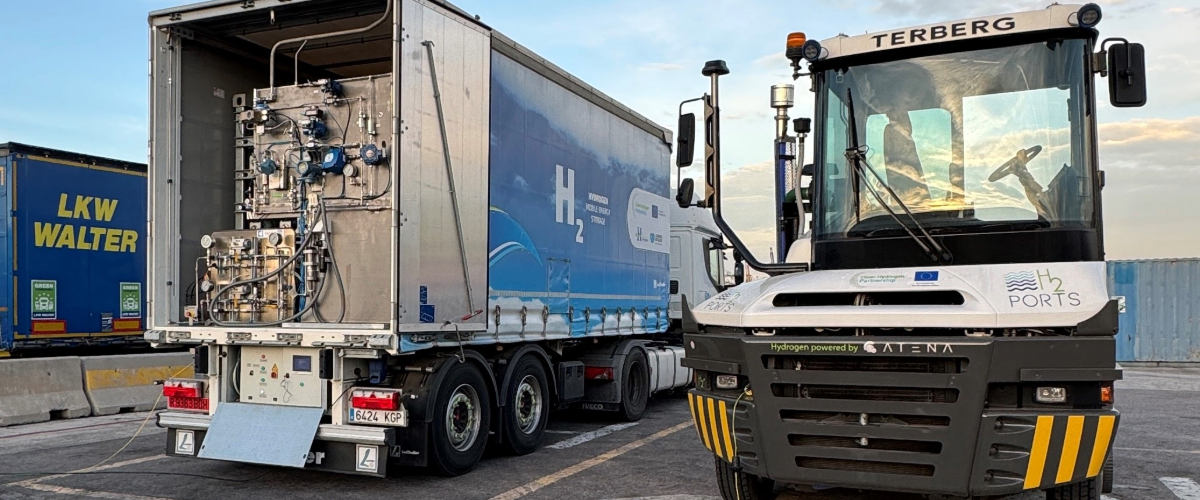H2PORTS Project: First Refuelling of Hydrogen Tug Master Carried Out Successfully in Valencia
With the aim of pursuing green solutions for
last-mile marine and first-mile land operations, the Grimaldi Group, together
with its subsidiary Valencia Terminal Europa (VTE), has begun testing the
hydrogen-powered Tug Master at the Port of Valencia as part of the European
H2PORTS project.
On 1 October, the first refuelling of the
vehicle – a tractor for handling roll-on/roll-off cargo – was successfully carried
out using a mobile hydrogen refuelling station provided by the Centro Nacional del Hidrógeno (CNH2 –
Spain’s National Hydrogen Centre). Tests continued throughout the week, with constant
monitoring of the pressure and temperature parameters of critical components to
ensure the safety of both the personnel and equipment involved.
Throughout October, the Tug Master was used and
tested by Valencia Terminal Europa employees during daily unloading and loading
of roll-on/roll-off cargo on the Grimaldi Group’s new “Eco” vessels.
Operational use of the Tug Master will continue in the coming months until the
project’s completion, scheduled for December 2025. If the positive results from
this initial testing phase are confirmed subsequently, the Grimaldi Group will
consider converting more vehicles in its fleet to hydrogen.
The primary goal of H2PORTS is to provide
efficient solutions that facilitate a swift transition from a fossil fuel-based
industry to one with low or zero carbon emissions. The project, with an
investment of 4 million euros, is funded by the Fuel Cell and Hydrogen Joint
Undertaking (FCH JU), a European public-private partnership aimed at promoting
hydrogen as a low-emission alternative. In addition to the Grimaldi Group and
Valencia Terminal Europa, other participants include the Fundación Valenciaport (project coordinator), the National Hydrogen
Centre, and private companies Atena, Ballard Power Systems Europe and Carburos
Metálicos. Through these project actions, the Grimaldi Group continues its
search for cleaner fuels for port use, thus contributing to the decarbonization
of transport-related activities.


